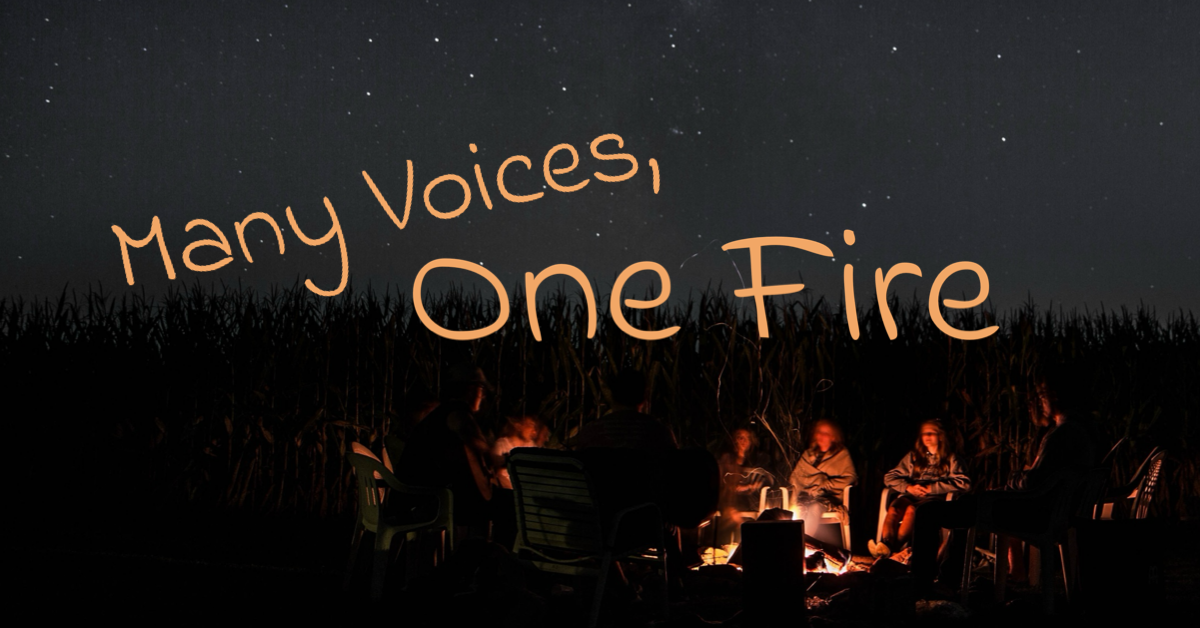
by William Hartman
When I was younger I thought I was Irish and I am, later I learned I was German, so I’m that too. And then I learned by word of mouth and documentation in the family we had English, and Welsh, and Dutch, Scottish, probably French Canadian as well (according to Ancestry.com some Baltic Slav and Swedish too). Well I’m an American by birth and upbringing so I guess that makes me a proud mutt. But how do you satisfy all those bloodlines when you’re trying to build a practice that satisfies your ancestors (not only by blood) and whatever spiritual powers you work with?

I grew up in a time when we didn’t have access to computers, when the only way to learn was by word of mouth, teachers you found when the time was (somehow) right, and whatever books you could find that would satisfy the burning need to understand not only that need, but also scratch that itch for working with the Spirit world.
Some of the things I’ve learned was that patience and sincerity are two of the most important tools you can create within yourself; and the third is integrity. The Ancestors will work with you if you foster these qualities within yourself. It can take time though, so be patient, be sincere, and lastly (not to be too boring) show you’ve integrity. They will know when you are lying as will whatever spiritual powers you may work with beyond your ancestors. If someone is not willing to work with you it is alright to find out why, you’re expected to. ASK. Use your favorite form of divination. Sometimes they refuse to connect just to see if you’ve the backbone to earn them as an ally to work with you. This sort of thing is very common when creating relationships with spirits of any sort..
Over time I’ve made the effort to get at least a working knowledge of the peoples my family came from. It has taken me decades to come up with a practice that satisfied me. Here is an Hebridean outline which for me bears elements of Shamanism, Mysticism, and Witchcraft (how I characterize it for the sake of brevity). I call it Hebridean as it holds the majority of the ancestral elements I’ve described as well as being a major inheritance of mine from the matrilinial side of my family.
Hebridean (Celto-Norse/Germanic) practice recommendations:
Areas of interest: Old Lordship of the Isles, Isle of Man, Northern Wales and the Anglo-Scots Border as well as the Highlands region
Tools: Sgian Dubh, Oak walking stick and/or Blackthorn walking stick, runes (kind by preference), tellstones, dowsing (pendulum/forked branch), Black mirror (bowl of water with drop of ink, etc) scrying, Jaw Harp (trance aid) and reading the Book of Nature, Herbalism. (I personally don’t like to have a lot of tools)
Animistic – Everything has a spirit whether it is created by Nature or by Man. Energy cannot be created or destroyed.
Complementary skill-sets to learn: armed and unarmed combat, Emergency Medical training, wilderness skills
Workable pantheons (no particular order) Irish, Welsh, Scottish/Pictish, Norse, and Germanic, Slavic, also Shoney
Combining elements of Celtic and Norse-Germanic practices with a nod to Slavic practice on occasion gives me a feeling of balance – a feeling of much needed peace and clarity. Which in my opinion is the green-light I needed from the Ancestors and other spiritual powers I work with to pursue my practice in this way.
The reason I have combined elements of Norse/Germanic along with the Celtic is that over thousands of years of what we now call the British Isles, these islands have seen many waves of different peoples that could fall under the aegis of what we might consider (and really Slavic or Middle Eastern and Asian too depending on the sources you explore) Norse/Germanic and Celtic.
The recommendations for what I’ve suggested here as practices are not to make those interested follow a strict set of rules (though they can if they choose to) but to give them a starting point to inspire them to move forward from this outline into one that better fits their own way of doing things. No, it doesn’t have to be ‘Hebridean’ as I’ve termed this example or Norse/Germanic or any flavor of Celtic. What matters is your practice speaks to you; that your Ancestors and the other spiritual powers who favor you, work with you in a harmonious fashion What is most important, regardless your practice is that you be sincere in your actions, have integrity, be patient, and do your best to be consistent with all of them. The Ancestors are watching after all… make them proud!
I have been studying and/or practicing in one form or another for better than forty years. My interests run through the range of mystic, witch, and warrior with more than a healthy sampling of poet-seer in all of them. My studies mostly take me through the Celtic and Germanic tribes with an admixture of other peoples and beings from their pantheons I’ve been fortunate enough to work with. I consider myself an ancestral practitioner rather than an eclectic as I work with the spirits that wish to work with me and don’t really put a name on what I am as I find such labels limiting by definition. Druid by faith I find a fair enough description, but as a practitioner I do what I feel the situation calls for no more, no less.